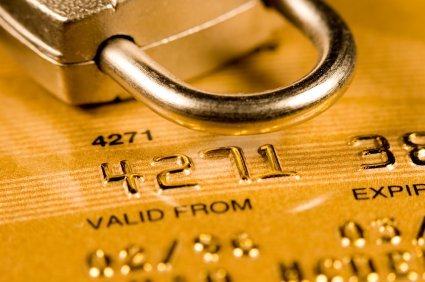Paying with a credit card offers the ultimate in convenience when you’re taking care of all that holiday shopping, – particularly when Black Friday deals abound on the web and retailers are offering door-buster sales.
But using your credit card either online or offline could put you at risk for identity theft and fraud if you’re not careful.
And with identity theft impacting more than 10 million people in the U.S. each year, it’s important to make sure that all of your credit-card transactions are safe and protected.
Here are seven ways to protect yourself from credit card fraud this holiday season and year-round:
1. Be careful with auction sites and classified ads. Many cyber criminals post classified ads and auctions for products they don’t even have in an attempt to capture your credit card information. Be very cautious when providing credit card information directly to random sellers. Make sure your transactions are protected in some way so you can file a dispute if the transaction ends up being a scam.
2. Verify that you’re shopping on a secure site. Look for the “https” in front of any online store when you are ready to make a purchase. You always want to make sure you’re entering your credit card information on an encrypted site has layers of security.
3. Don’t click through emails. Many retailers send out special offers and discounts via email to lure shoppers to stores, or to make a purchase online. However, some of these can be part of a phishing scam, which means you could be clicking through to a fake site and handing over your credit card information to a scam artist. Unless you are 100% certain of the source of the email, be wary about email offers and consider visiting the store’s website without directly clicking through an email link.
4. Make sure your card returned to you. In the middle of a holiday rush, there’s a chance that the store clerk or cashier could end up accidentally (or intentionally) holding onto your credit card after you make a purchase. So before you leave a cash register or shopping counter always double-check to make sure you have taken your credit card with you. Even if the cashier does return it to you, try to avoid putting it on the counter while you’re doing other things, like tucking away a receipt or picking up heavy bags.
5. Review your monthly statements. If you use your credit card often, make sure you’re checking your monthly statement to ensure all transactions are posting correctly and accurately. Double check any debit card or check card transactions a few days after your purchase to make sure they are accurate. You also want to keep your eyes peeled for any unauthorized charges that might be posting to your account.
6. Don’t let your credit card get out of your sight. Some credit card thieves use a device called a ‘skimmer’ to capture credit card information as it’s being scanned at or near the point of sale register. Watch where the credit card is being scanned so it’s never out of your sight. And again, particularly after big shopping sprees, check your statements shortly after your purchases to detect any possible questionable or fraudulent charges.
7. Be careful with charity donations. The holidays are a special giving season, and that includes giving to non-profits, religious institutions and various charities. Many charitable organizations now accept credit card payments for donations, but you need to make sure you’re not handing over those digits to a con artist.
Make sure you’re dealing with a legitimate organization and website before you even think about putting the donation on your credit card. Don’t rely on emails to get you to the donation page, and consider approaching the charity directly and sending a check as a contribution instead.










